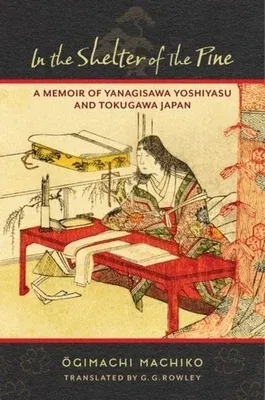Ōgimachi Machiko
(Author)In the Shelter of the Pine: A Memoir of Yanagisawa Yoshiyasu and Tokugawa JapanPaperback, 29 June 2021

Qty
1
Turbo
Ships in 2 - 3 days
In Stock
Free Delivery
Cash on Delivery
15 Days
Free Returns
Secure Checkout

Part of Series
Translations from the Asian Classics
Print Length
368 pages
Language
English
Publisher
Columbia University Press
Date Published
29 Jun 2021
ISBN-10
0231199511
ISBN-13
9780231199513
Description
Product Details
Author:
Book Format:
Paperback
Country of Origin:
US
Date Published:
29 June 2021
Dimensions:
23.19 x
15.19 x
2.21 cm
ISBN-10:
0231199511
ISBN-13:
9780231199513
Language:
English
Location:
New York
Pages:
368
Publisher:
Weight:
521.63 gm